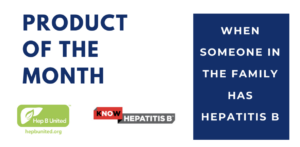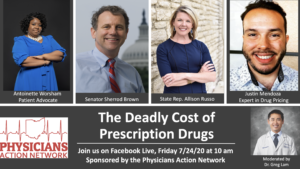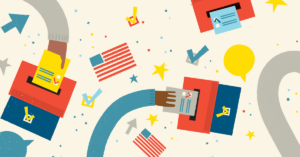Fear and anxiety about a new disease and what could happen can be overwhelming and cause strong emotions in adults and children. Public health actions, such as social distancing, can make people feel isolated and lonely and can increase stress and anxiety. However, these actions are necessary to reduce the spread of COVID-19. Coping with stress in a healthy way will make you, the people you care about, and your community stronger.
On July 9 and 11, Ohio Asian American Health Coalition cosponsored two free mental health webinars in collaboration with Asian Festival, and CSJ. During the webinars facilitators and attendees discussed COVID-19’s impact on mental health and identified strategies for healing and resiliency to promote mental wellness during the global pandemic.
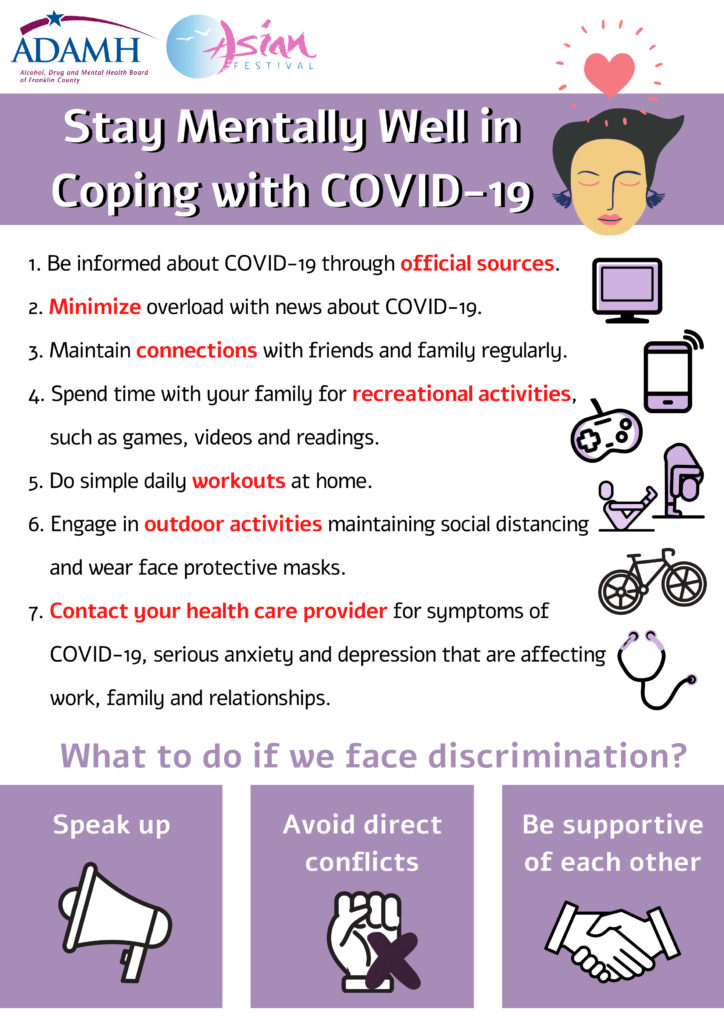
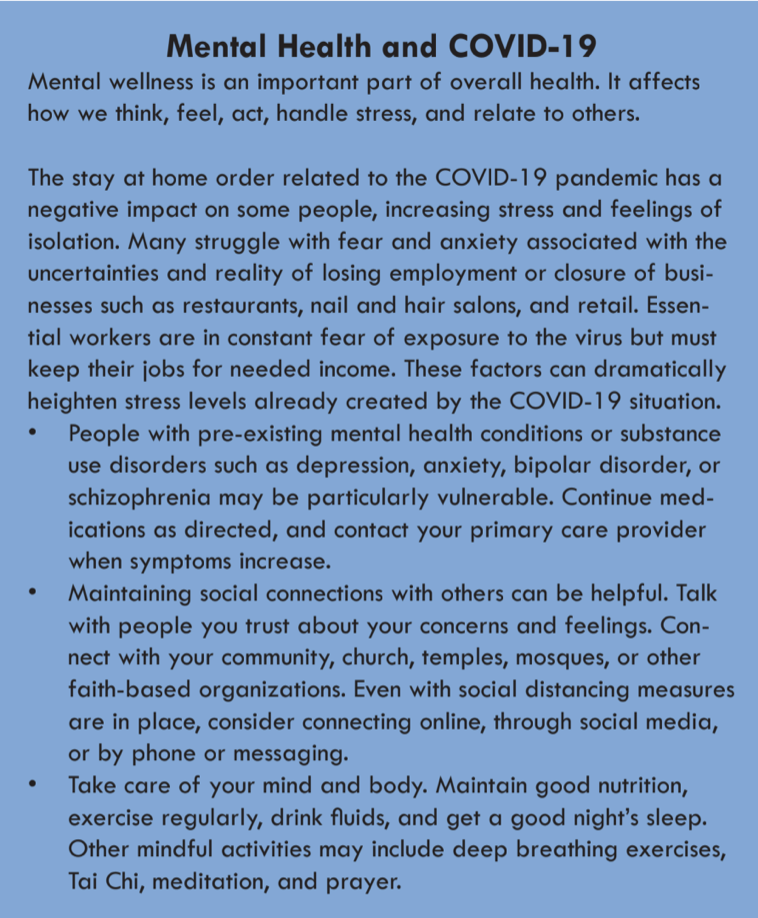
Take care of your mental health
You may experience increased stress during this pandemic. Fear and anxiety can be overwhelming and cause strong emotions. But there are ways to better prepare yourself if you are feeling overwhelmed and can feel your mental wellness needing
- Know what to do if you are sick and are concerned about COVID-19. Contact a health professional before you start any self-treatment for COVID-19.
- Know where and how to get treatment and other support services and resources, including counseling or therapy (in person or through telehealth services).
- Take care of your emotional health. Taking care of your emotional health will help you think clearly and react to the urgent needs to protect yourself and your family.
- Take breaks from watching, reading, or listening to news stories, including those on social media. Hearing about the pandemic repeatedly can be upsetting.
- Take care of your body.
- Take deep breaths, stretch, or meditateexternal icon.
- Try to eat healthy, well-balanced meals.
- Exercise regularly.
- Get plenty of sleep.
- Avoid excessive alcohol and drug use.
- Make time to unwind. Try to do some other activities you enjoy.
- Connect with others. Talk with people you trust about your concerns and how you are feeling.
- Connect with your community- or faith-based organizations. While social distancing measures are in place, consider connecting online, through social media, or by phone or mail.
Take care of yourself and your community
Taking care of your friends and your family can be a stress reliever, but it should be balanced with care for yourself. Helping others cope with their stress, such as by providing social support, can also make your community stronger. During times of increased social distancing, people can still maintain social connections and care for their mental health. Phone calls or video chats can help you and your loved ones feel socially connected, less lonely, or isolated.
Get immediate help in a crisis
- Call 911
- Disaster Distress Helplineexternal icon: 1-800-985-5990 (press 2 for Spanish), or text TalkWithUs for English or Hablanos for Spanish to 66746. Spanish speakers from Puerto Rico can text Hablanos to 1-787-339-2663.
- National Suicide Prevention Lifelineexternal icon: 1-800-273-TALK (8255) for English, 1-888-628-9454 for Spanish, or Lifeline Crisis Chatexternal icon.
- National Domestic Violence Hotlineexternal icon: 1-800-799-7233 or text LOVEIS to 22522
- National Child Abuse Hotlineexternal icon: 1-800-4AChild (1-800-422-4453) or text 1-800-422-4453
- National Sexual Assault Hotlineexternal icon: 1-800-656-HOPE (4673) or Online Chatexternal icon
- The Eldercare Locatorexternal icon: 1-800-677-1116 TTY Instructionsexternal icon
- Veteran’s Crisis Lineexternal icon: 1-800-273-TALK (8255) or Crisis Chatexternal icon or text: 8388255
Find a health care provider or treatment for substance use disorder and mental health
- SAMHSA’s National Helplineexternal icon: 1-800-662-HELP (4357) and TTY 1-800-487-4889
- Treatment Services Locator Websiteexternal icon
- Interactive Map of Selected Federally Qualified Health Centersexternal icon
ADAMH funded the Asian Festival to host a Webinar on COVID- 19 Mental Wellness, Coping Strategies and Self-Care, cosponsored by the Ohio Asian American Health Coalition, and the Asian-American Community Service Council.

